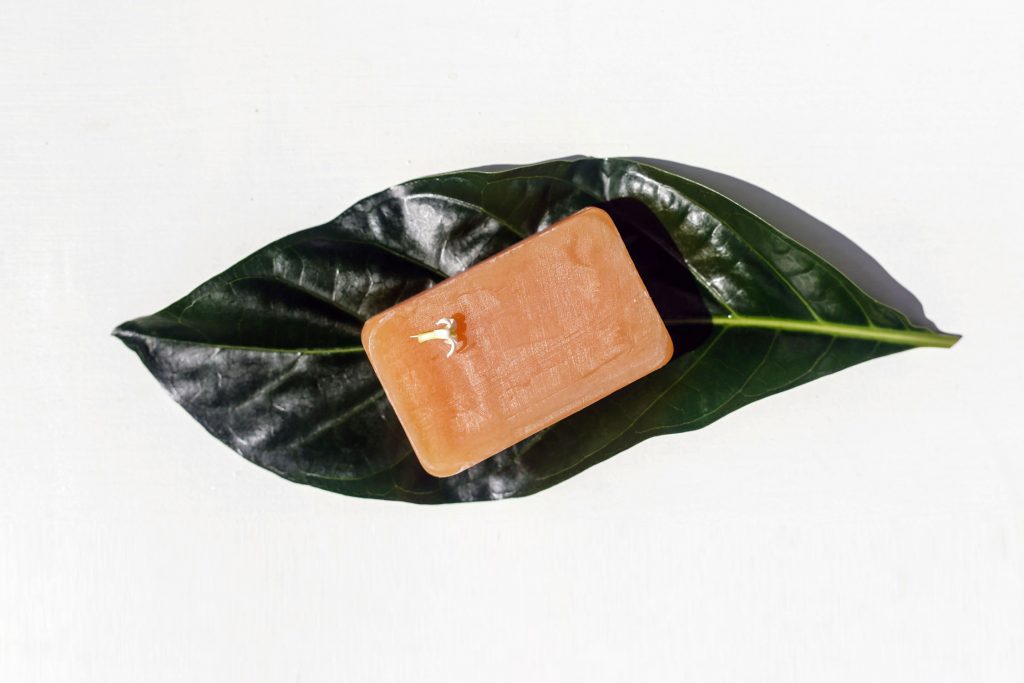
Very few skincare brands speak about health, but Biconi is one of those rare brands that focus on ingredients that feed the skin. Even their soap is made with pure whole foods and nutrients. This switch in perspective can transform you skin – rather than focusing products to “fix” your skin – focus on nourishing your skin.
The number one question that I get about natural skincare has to be around soap: what to look for, what to use – especially for sensitive skin!
In this article, Biconi talks to us more about their natural soaps, their process and why they think you should start feeding your skin Noni fruit!
What’s the difference between natural soap and commercial soap, both in the process of making the soap as well as the ingredients and benefits?
Commercial soap are mostly mass-produced fancy detergents, made with harsh chemicals such as peterochemicals, SLS (Sodium Laureth Sulfate), parabens, Triclosan – the list goes on! They are produced in large quantities in factories using chemical ingredients that may not be biodegradable and potentially harmful to the environment. The term “soap” is heavily regulated and companies are not allowed to use the word “soap” unless it really is a true bar of handcrafted soap. So an easy way to spot the culprits is by steering clear of products containing words such as “skin cleansers”, “beauty bars” or “body wash”.
Natural soap are handmade in small batches, using a recipe developed by our ancestors stretching back millenias. With just a few key ingredients – water, lye, fats and oils – natural soap is the result of a simple chemical reaction called saponification. All ingredients are natural, gentle on the skin and kind to Mother Nature.
Natural soap are made from real ingredients as opposed to harsh chemicals, making it suitable for sensitive skin. In fact, your skin sensitivity may have well been triggered from using commercial cleansers. Babies, children and pregnant women would also benefit from using natural soap – as would everyone else.
Is natural soap moisturizing? Can I use it for my face as well as my body?
As natural soap contains a large percentage of oils and fats, it won’t strip away sebum – a layer of protective oily substance that’s produced by your body to prevent hair and skin from drying out. So yes, you can (and should) use it from head to toe!
Is it possible to make soap at home? How can I do that?
Yes it is, and all you need are a few basic ingredients and your kitchen. There’s a treasure trove of handmade soap recipes available online so pick one that best suits your needs.
One of the ingredients that you must have in soapmaking is lye (sodium hydroxide), and there can be no substitution for lye as it is required to react to the oils to create a process called saponification. The end result of this chemical reaction is soap, which is why you can’t get a real bar of soap without lye. In its purest form, lye is toxic and should be handled with extreme care – but once it has been used for saponification, there will be no trace of lye left in your finished soap, making it safe to use for the whole family.
How long does a typical bar of natural soap usually last and do you have any tips to make them last longer?
That really depends on the size of the soap bar, what you are using it for and how you use it. To prolong the lifespan of your soap, avoid using it under running water and place in on a soap tray when not in use. To make my soaps last longer, I place them in a soap saver bag, which has the added benefit of creating a rich lather.
What makes your product different from other natural soaps?
Biconi soaps contain a high percentage of glycerin, a natural by-product of soapmaking. Glycerin is very moisturizing but also expensive, so it is sometimes skimmed off after the soap making process to sell off as a premium ingredient to be used in other beauty products. We prefer to keep the glycerine in our soap for its gentle, moisturizing properties. All of our soaps are formulated with noni enzymes and virgin coconut oil, providing an antioxidant boost with every wash.
Why noni fruit? What are the benefits for our skin?
- High level of antioxidants in noni can help to repair skin and reverse the signs of ageing
- Noni has anti-inflammatory properties to help soothe inflamed skin and reduce skin redness
- Noni’s analgesic properties can also help with itching – together with its anti-inflammatory properties, noni is very effective in reducing symptoms of eczema and dermatitis.
- Noni’s powerful antibacterial and antimicrobial properties will help balance growth of malassezia, a fungus-like yeast that can cause dandruff.
- Among other things, noni is rich in Vitamin B, C, E, calcium, iron and magnesium – all important vitamins and minerals for healthy skin and hair.
Thanks Biconi for sharing what you love!
Get to know more about Biconi, a family business that started with a single tree!

4 responses to “Get the Dirty on Soap”
What is a soap saver bag and where can you buy them in NY?
The soaps certainly look great! Too bad they’re not more affordable…
Hi Naomi! I asked her about that when we first met… but after getting to know her story, the ingredients and what goes into it… we see where the costs go. She talked to me about the shampoo bar, used by a lot of people struggling with hair-loss and it’s a good alternative for anyone considering an expensive hair treatment clinic.
I’m glad that you liked their story, I learn so much from these makers!
Thanks for you comment – I’m inspired to do a DIY cleanser article – have you tried making your own?
I certainly do appreciate all the wonderful quality that goes into these soaps! I’d be happy to pay for it if I had the money. I work in social services, so money is tight. I definitely prioritize high-quality items when I can and also make items when able.
I don’t use cleansers on my face, and making soap seems a little out of my league! Would definitely love it if you did a diy cleaner article!